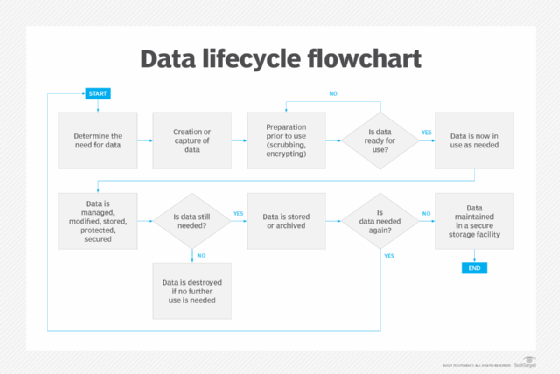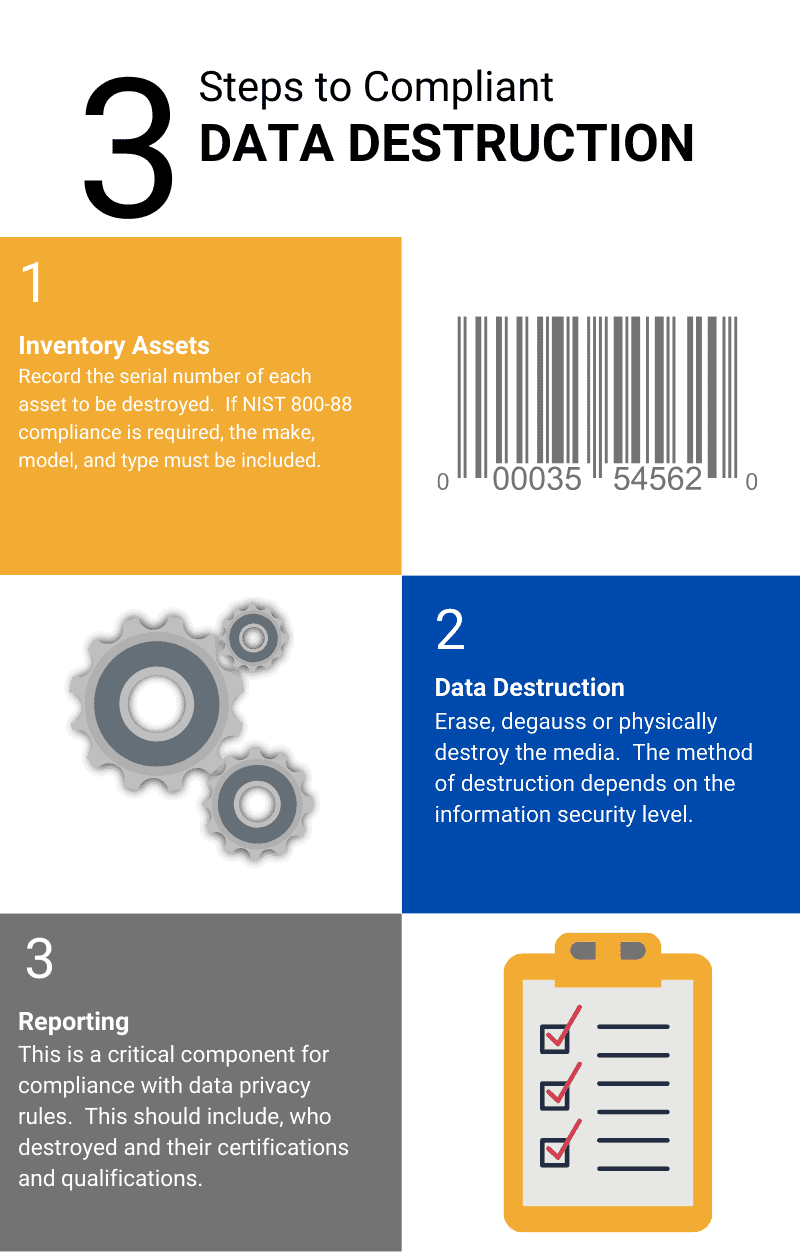Best Practices for Data Destruction to Strengthen Your Cyber Security Framework
Best Practices for Data Destruction to Strengthen Your Cyber Security Framework
Blog Article
The Essential Nature of Data Devastation in Upholding Computer System Protection Solutions and Protecting Versus Unauthorized Access
In an era where data breaches and identification burglary are significantly prevalent, the value of efficient data devastation can not be overstated. Various techniques, from data wiping to physical destruction, serve as critical safeguards against unauthorized accessibility.
Relevance of Data Destruction
In an increasingly digital world, the relevance of data destruction can not be overstated. As companies accumulate huge amounts of sensitive information, the potential consequences of falling short to correctly handle and dispose of that information end up being significantly extreme. Information violations, identity theft, and business reconnaissance posture considerable dangers, underscoring the requirement of effective data damage practices.

Additionally, as modern technology develops, so too do the methods by which destructive actors seek to manipulate sensitive details. Organizations should remain vigilant and positive in their information damage strategies to guard against these progressing risks. By focusing on information damage, business not just secure their possessions yet additionally foster trust among stakeholders and customers, demonstrating a commitment to responsible information management and security methods.
Methods of Effective Information Devastation
To ensure the full and irreparable destruction of delicate data, companies can use a variety of reliable approaches tailored to their specific demands. Among one of the most typical approaches is information cleaning, which involves using specialized software to overwrite existing information several times, making recuperation virtually impossible. This is particularly useful for solid-state drives and tough drives, where standard deletion methods are inadequate.
One more effective approach is degaussing, which makes use of solid magnetic areas to interfere with the magnetic domain names on storage space media, rendering the data irretrievable. This method is specifically fit for magnetic storage gadgets, such as disk drive and hard drives.
Physical destruction is also a sensible option, including the shredding, squashing, or incineration of storage space tools. This approach assurances that information can not be recuperated, making it excellent for companies handling extremely delicate information.

Conformity With Data Defense Laws
Organizations should not just concentrate on effective information damage approaches yet additionally guarantee conformity with information security regulations that govern just how sensitive information is dealt with and taken care of. Sticking to these regulations is essential for keeping and protecting personal data client count on. Rules such as the General Information Security Policy (GDPR) in the European Union and the Health And Wellness Insurance Portability and Accountability Act (HIPAA) in the USA enforce rigorous standards on information monitoring, which consist of demands for the safe disposal of sensitive details.
To accomplish compliance, companies need to carry out comprehensive data devastation plans that straighten with these lawful frameworks. This consists of determining data that requires destruction, developing methods for safe and secure methodsâEUR" such important site as shredding physical media or making use of software application that meets sector criteria for data wipingâEUR" and maintaining in-depth documents of destruction tasks. Normal audits must be performed to make sure adherence to these plans and to recognize any type of potential locations for enhancement.
Failure to adhere to information security laws can result in substantial legal implications, including substantial penalties and damage to a company's track record. Consequently, incorporating conformity right into information devastation practices is not only a lawful commitment but likewise a vital part of a durable info protection strategy.
Effects of Poor Information Handling
Poor data handling can result in serious repercussions that prolong beyond instant functional troubles. Organizations may deal with considerable economic losses as a result of information breaches, which typically cause pricey remediation initiatives, lawful charges, and regulatory penalties. These economic implications can look at this now stress resources and impede growth, eventually affecting an organization's profits.
Additionally, inadequate information handling can seriously damage an organization's online reputation. Consumers, stakeholders, and companions might shed rely on an entity that fails to protect sensitive information, leading to decreased consumer commitment and possible loss of business opportunities. This erosion of count on can take years to reconstruct, if it can be restored at all.
Additionally, organizations can encounter legal implications arising from non-compliance with data security guidelines. Such offenses might result in fines and examinations, intensifying the monetary concern and more staining the company's photo.
In the world of cybersecurity, inadequate information management methods can produce susceptabilities that make systems extra prone to unapproved gain access to and cyberattacks. Eventually, these repercussions emphasize the important importance of implementing durable data taking care of treatments to protect delicate info and keep organizational honesty.
Finest Practices for Secure Data Disposal


Firstly, information must be categorized according to its level of sensitivity. Sensitive info requires more extensive disposal techniques, such as shredding physical papers and utilizing innovative software application for electronic data wiping. Using licensed data destruction solutions ensures conformity with industry policies and criteria.
Second of all, companies should execute an information disposal policy that mandates routine audits. This plan must detail the procedures for information retention and damage, ensuring that obsolete data is gotten rid of immediately and firmly. Educating staff members on these methods is crucial to fostering a society of safety recognition.
Finally, preserving detailed documents of disposed data boosts accountability and supplies a clear audit route. This documentation should include the kind of information destroyed, the approach used, and the date of disposal.
Final Thought
Adopting durable methods such as data wiping, degaussing, and physical damage, together with compliance with laws like GDPR and HIPAA, is crucial for protecting sensitive info. Neglecting correct information disposal practices can lead to severe consequences, consisting of data violations and legal consequences.
In an age where information violations and identification burglary are increasingly common, the importance of efficient data destruction can not be overemphasized. data destruction. Data violations, identity theft, and corporate espionage present considerable hazards, highlighting the need of effective information devastation practices
Conformity with regulations such as GDPR and HIPAA requireds that companies execute rigid data security steps, including the protected destruction of data at the end of its lifecycle.
By focusing on data devastation, business not just protect their possessions but also foster depend on amongst customers and stakeholders, demonstrating a commitment to responsible data administration and protection methods.
Organizations should not just focus on reliable data destruction techniques yet also ensure conformity with information defense laws that govern just how sensitive information is dealt with and disposed of.
Report this page